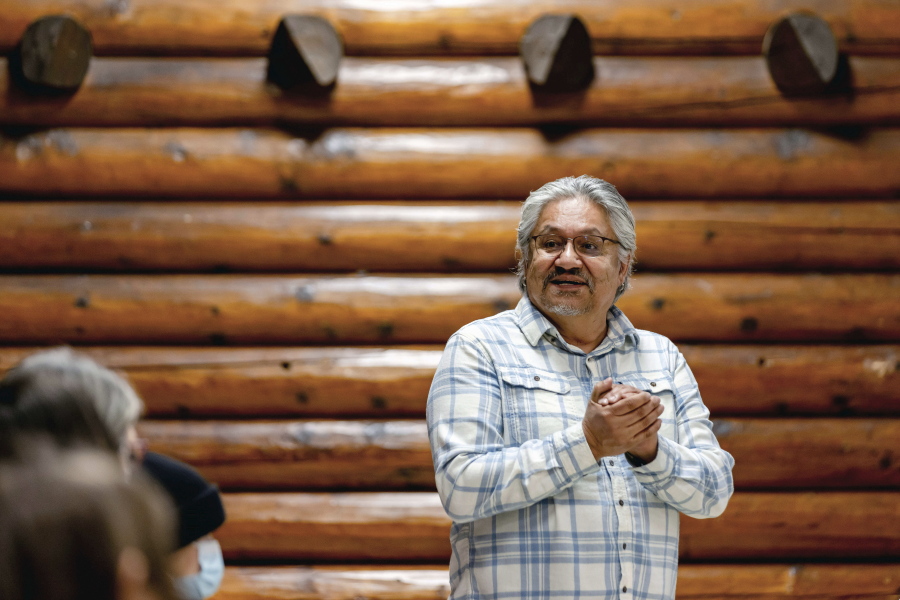GRAND PORTAGE, Minn. — The two-dozen schoolchildren sat in a circle for about an hour, enthralled, as Gordon Jourdain regaled them with tales of the Creator and the origins of their Ojibwe people. As the session wound down, one boy raised his hand and asked, to a chorus of giggles, “How did girls come to be on the planet?”
The storyteller at first kept a serious face as he told them a full answer would take hours to recount. Then he cracked a broad smile.
“The first was Mother Earth, and isn’t she beautiful?” Jourdain enthused, urging them to look outside at the sunshine sparkling on 24 inches of pristine snow, among fir-covered hills overlooking a small bay on a frozen Lake Superior.
The classroom scene at Oshki Ogimaag charter elementary school in this far-northern Minnesota village highlighted the crucial role that oral storytelling plays in Ojibwe spiritual tradition, as is the case with other Native American peoples. Believed to be in itself a gift from the Creator, the ritual telling of creation, spirits and ceremonies helps keep cultural worldviews, ethical teachings and religious experiences alive across generations.



